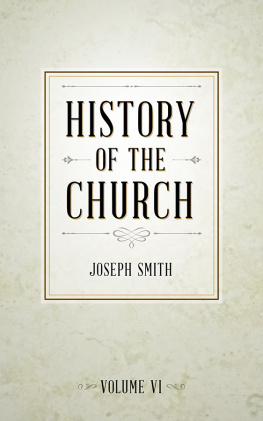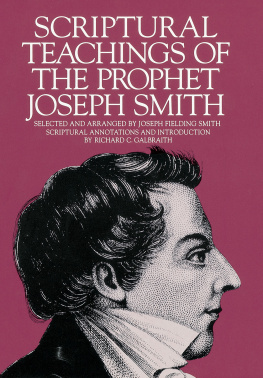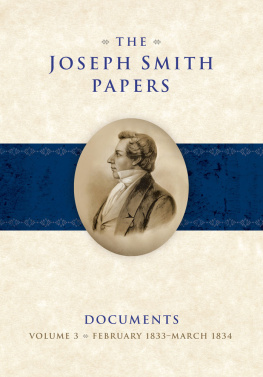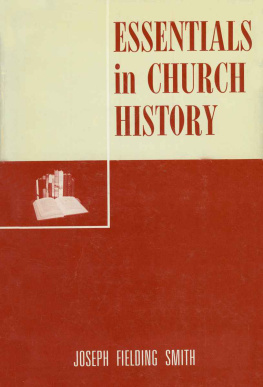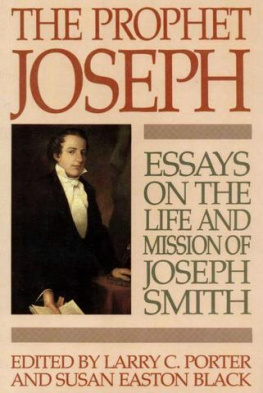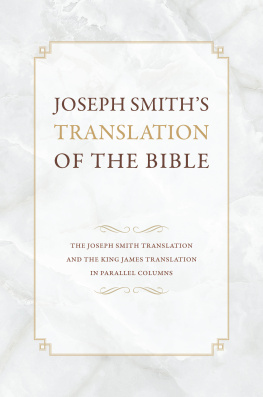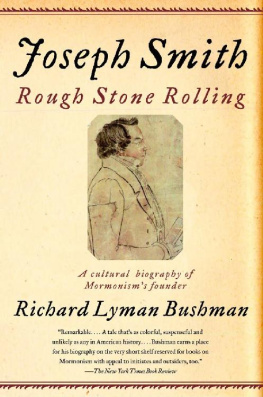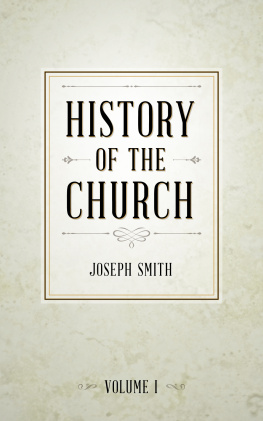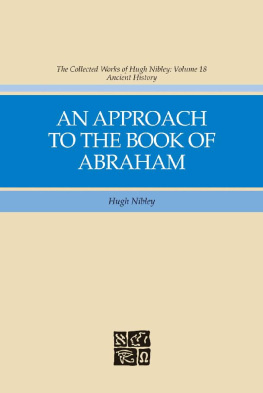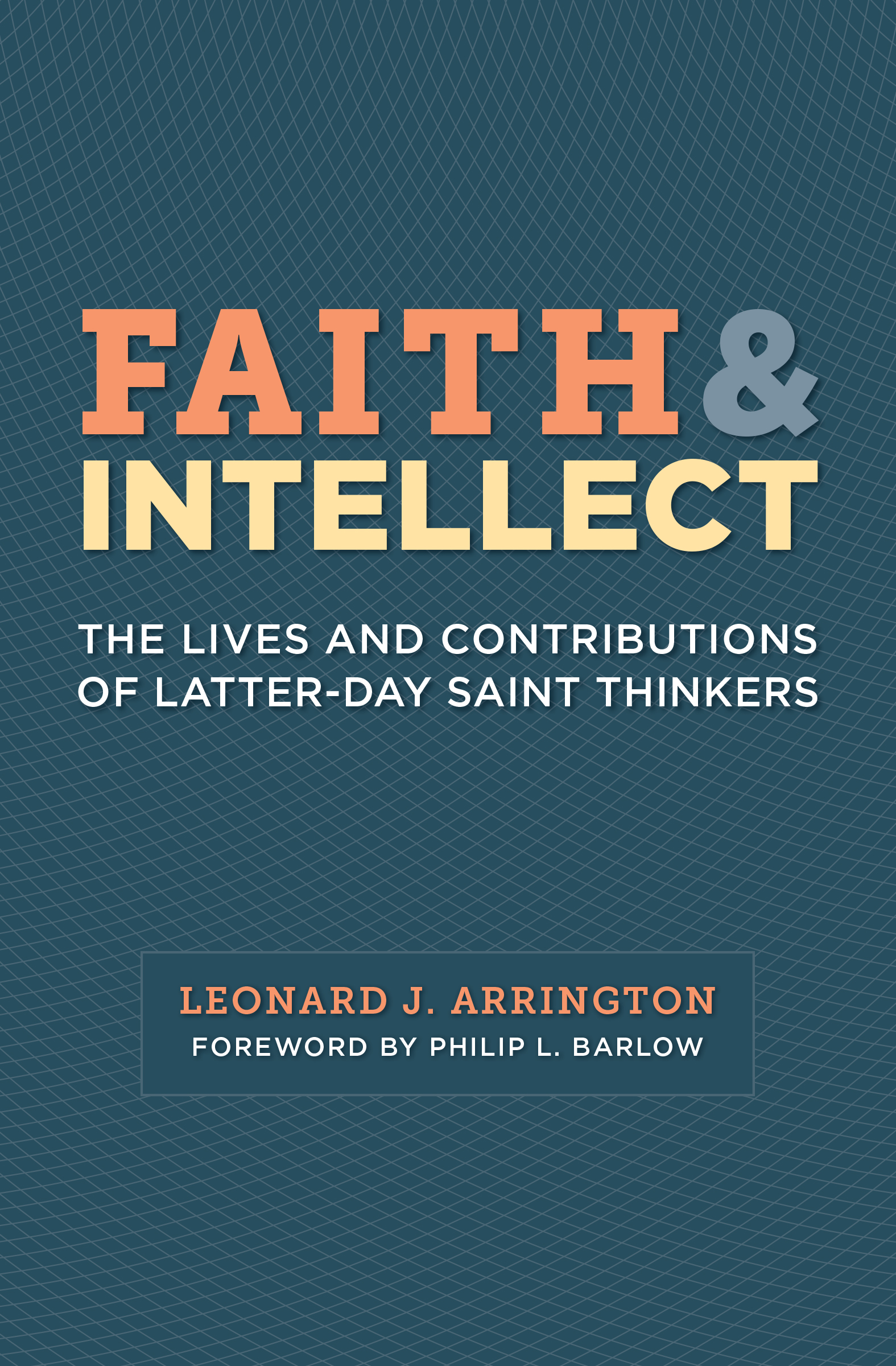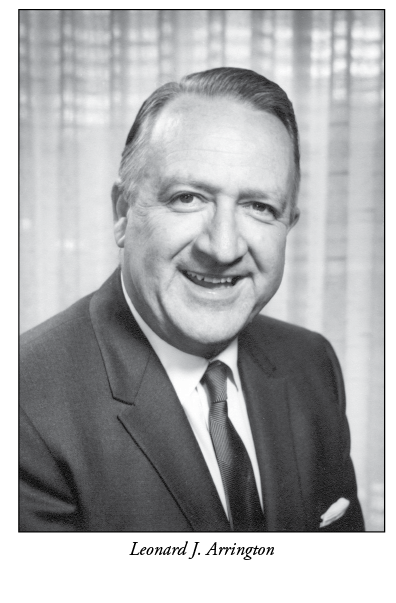F a ith &
I n t e ll e c t
The Lives and Contributions
of Latter-day Saint Thinkers
Leonard J. Arrington
Foreword by Philip L. Barlow
Edited by Gary James Bergera
Signature Books | 2019 | Salt Lake City
2019 Signature Books Publishing LLC. Signature Books is a registered trademark. All rights reserved. Printed in the USA. www.signaturebooks.com
The opinions expressed in this book are not necessarily those of the publisher.
Design by Jason Francis.
First edition | 2019
library of congress cataloging-in-publication data
Names:Arrington, Leonard J., author. | Bergera, Gary James, editor.
Title:Faith and intellect : the lives and contributions of Latter-day Saint thinkers / by Leonard J. Arrington.
Description:First edition. | Salt Lake City : Signature Books, 2019.
Identifiers:LCCN 2019018833 (print) | LCCN 2019021214 (ebook) |
ISBN 9781560853602 (e-book) | ISBN 9781560852759 (pbk. : alk. paper)
Subjects:LCSH: MormonsBiography. | Mormon intellectualsBiography. | Faith and reason. | LCGFT: Biographies.
Classification:LCC BX8693 (ebook) | LCC BX8693 .A75 2019 (print) | DDC 289.3092/2 [B] dc23
LC record available at https://lccn.loc.gov/2019018833
Contents
Foreword
Philip L. Barlow
Leonard Arrington was a prophetic figure in the Mormon world of the second half of the twentieth-century.
He was not an institutional prophet, seer, and revelator through apostolic ordination; he was instead a supporter of these. Nor was he, as Joseph Smiths Enoch, a Bible-like prophet, whose fundamental experience was a communion with the divine consciousness which comes about through the prophets reflection of, or participation in, the divine pathos.
It was in a different mode than these that Arringtons voice caught the wind. He was prophetic in that he incarnated something that his fellow Latter-day Saints needed before most of them knew they needed it. He embodied the spirit, values, capacity, credibility, diligence, opportunity, and podium to reclaim and create for them a plausible past. He became a forth teller ( ? ; prophts ) whose telling assumed the guise of informed public candor and balance while grappling with historical issues crucial to LDS identity and faith. So high were the perceived stakes in controlling identity and faith that some church officials, over the objections of others, constricted Arringtons project and ultimately thrust it aside. This act sowed the wind; the Mormon people reaped the whirlwind.
Among other things, the storm yielded a twenty-year chill between the churchs administrative and intellectual leaders. In ways that would have pleased Leonard Arrington, the relationship was thawing as the twenty-first century began. A series of shared or parallel initiatives, public church statements issued through official venues, and quiet actions signaled an uneven but important renewed openness and reciprocity.
The earlier permafrost, however, exacted an ongoing toll on a new generation whose native tongue was the internet. This revolutionary forum, democratic without precedent, sometimes hosted competent voices but often partisan, shrill, or ill-informed ones. This cacophonic choir introduced a widening public to versions of the historical and social problems that Arrington and his colleagues had earlier attempted to address, with erudition, in the context of faith. The result among an unprepared populace was frequent dismay, even panic, and a sense of betrayal. Why werent we told these things while growing up in the church? The dismay proved contagious among a widening minority, contributing to the Mormon inflection of a growing societal disenchantment with organized religion.
Decades earlier, before becoming a public figure, Arrington had launched his work during an era when the Latter-day Saints were taken seriously by few external scholars, when historical accounts of Mormonism were lobotomized into defending and debunking camps, and when his fellow Saints and their leaders were collectively ambivalent. They were interested, even triumphal, concerning their past, yet some were wary lest too much history erode faith among the innocent. Others hungered for an unvarnished chronicle.
No other person of the twentieth century did more than Arrington to lay grounds for mitigating this unease. It is not that he was the first to write of the Mormon past with courage, relative balance, and sophistication; Juanita Brooks, Russell Mortensen, William Mulder, Dale Morgan, and, despite her own mixed feelings about the church of her youth, Fawn Brodie were among those who preceded him or began to publish near the same time. Nor was the quality of Arringtons historical scholarship in a class of its own. He enjoyed intellectual peers in such contemporaries as George Ellsworth, Davis Bitton, and Richard Poll and in others only a decade his junior, including Richard Bushman, Jan Shipps, and Armand Mauss. Amidst even this talent, Arrington remained distinctive during his lifetime. Wide ranging in the projects he took on and remarkably prolific, he added to his historical skills a pronounced entrepreneurial outreachattracting, organizing, enabling, and collaborating with younger scholars around him, becoming their natural leader.
This outreach was formalizedand a Mormon glastnost signaledwhen in early 1972 Arrington was appointed the first official Historian of the Church of Jesus Christ of Latter-day Saints to be professionally equipped for the task. The widely celebrated appointment, however, also rendered him a public lightning rod for contesting forces within Mormon culture.
As in the wider societywhose coherence during the 1960s and 1970s was tested to the verge of fracture by debate, riot, and morethese contests included matters of race, class, gender, generations, politics, war, education, and social and personal morals. Other prominent figures who enjoined causes related to Arringtons and who remained loyal to the LDS Church were similarly lightning rods for these internal struggles. Examples include Lowell Bennion, Eugene England, and an emerging constellation of LDS feminists such as Claudia Bushman, Laurel Ulrich, and Carol Lynn Pearson. LDS iterations of these cultural tensions added debates over Mormon origins and history.
Given the stresses around such figures and the issues they espoused, and given the reality of change across time and difference across space and class, how ought Latter-day Saints at any given point distinguish the permanent from the transient? Or the transcendent from the mundane? Revelation from policy? Essence from cultural habit? How should believers weigh prophetic authority and personal responsibility in cases where they seem at odds? One quandary undergirds the others: In a Mormon context that respects revelation and ecclesiastical authority, what is the proper relationship between faith and intellect?
In May 1993, LDS Apostle Boyd K. Packer shared his influential perspective on this question by including intellectuals, or a certain class of them (so-called intellectuals), as one LDS group which had been caught up and led away by social and political unrest and which presented a danger, having made major invasions into the membership of the Church. Four months later tensions deepened when six LDS intellectuals in disparate locations and of different dispositions were concurrently excommunicated, an event interpreted as a shot across the bow of the intellectual community and widely reported in American media and beyond. Perhaps influenced by such swirls, the History Department at BYUHawaii promptly inaugurated a series on Faith and Intellect, inviting Leonard Arrington to be the first annual lecturer for the following year (1994). The resulting four lectures form the core of the book you are about to read, supplemented by additional material, as editor Gary James Bergera explains.


